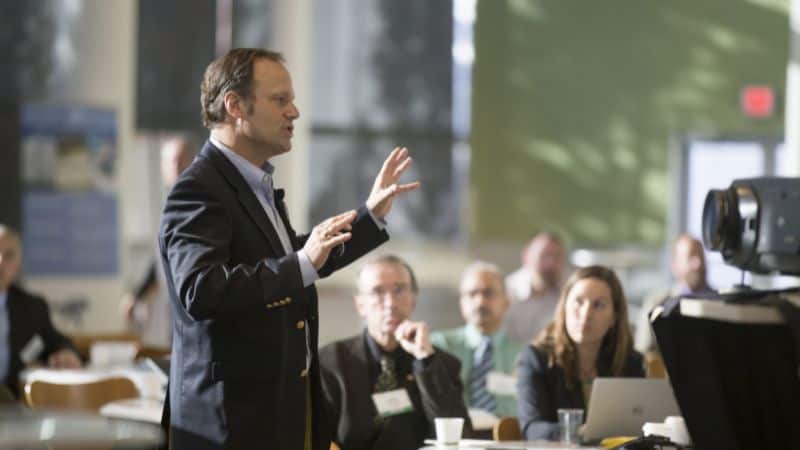Motivational speeches give people the courage to move forward and achieve their dreams. One can find thousands of excuses not to move, to procrastinate, or to sabotage oneself.
People are afraid to fail, but their fears make them fail even before they start. Fear comes from false beliefs.
A motivational speech can help your audience make the first step, the second step, the third, and more steps until you gain momentum and fly.
Not all motivational speeches are equal. Some motivational speeches resonate more than others. Some motivational speeches are shared, while most are forgotten.
I want to help you get motivated. I want you to muster the courage to make your dreams real. I started my motivational speaking career in 2004. Since then, I discovered some secrets that will help you appreciate a motivational speech and help you prepare to deliver a great one.
What is a motivational speech?
A motivational speech is a special kind of persuasive speech that challenges the audience’s limiting beliefs and encourages them to act on their dreams. Professional speakers deliver motivational speeches using stories, anecdotes, and illustrations to create vicarious experiences.
People have reasons (or excuses) for not acting on what they desire. They allow their fear to freeze them. A motivational speech shows the smallness of the monsters we fear and reveals the grandness of our most sacred dreams.
A motivational speaker uses stories that serve both as mirrors and metaphors. The audience can identify themselves with the heroes of your stories. Stories provide a vicarious experience and show what transformation the audience will experience after reclaiming their dreams and acting on them.
Secrets of Motivational Speeches
You can transform a life. Your speech can give courage, hope, and power to people. We still need to give a speech because its force is never-ending. But giving speeches provides a human-to-human connection and transfer of energy you won’t get in a blog or a printed page.
Study these ten epic speaking secrets that will help you transform the way you craft and deliver motivational speeches.

Great leadership isn’t an event—it’s a habit. Get actionable leadership habits every Monday and Thursday.
1. Give A Speech to Change the World
Give a motivational speech to change the world. Otherwise, don’t bother.
If your intention is to inform people, give them something to read, a good book perhaps. People are not hungry for information these days. We can get information for free, and we can give information for free. But if you want to change the world, give a speech.
Brainstorming, crafting, rehearsing, and delivering a speech takes a lot of hard work. It takes a lot of guts too. Most people are afraid to speak. They are so scared to fail. And there is always a chance that you will fail when giving a speech.
You take risks when you give a speech.
I have been a seminarian, an activist, a trainer, and a professional speaker. I delivered thousands of speeches to different people. The chance that my speech won’t connect is always there. So, why bother to give a speech if you don’t have a passion or a cause?
Do you take risks when you listen to a speech?
I have been an audience. I have listened to many speeches where speakers attempted to “cover” every bullet point, drown us with definitions, but never tried to move us into action. Being an audience takes a lot of hard work. Every time we decide to become your audience, we gamble our time. We risk our sanity. So, why bother to give a speech if you don’t intend to change our world.
Move us from problem to solution. Move us from solution to action. Move us from action to results.
Give a speech to move us.

2. Always listen to your audience.
The function of a motivational speech is to move people to action. You want them to grab the opportunity to change their lives. You inspire them to stand on their two feet and go for the jugular. You want the audience to claim what’s best for them.
You can only do this when you shift the focus from you to your audience.
Always listen to your audience.
Listen to your audience before you give a speech. Listen to fears and dreams. Let them show you where they are and how far they are from their goals. Let them tell you what stops them from getting what they want with what they already have.
As an audience, I have seen speakers asked the audience, “How are you?” but have not shown interest in our answers.
When speaking, you listen to your audience by observing their facial expressions, gestures, and answers. They are communicating with you – and unless you open yourself up to them, you won’t be able to listen.
A speech is a conversation. It is not a script you finalized during your last rehearsal. Whatever preparation you have done before giving a speech is essential.
But keep in mind that your endgame is not a smooth delivery. Your end game is to move people to action, to change the world. You can do this if you keep you always listen to your audience.
I won’t tire saying that a speech is a human-to-human connection. To become truly effective, we speakers got to do a lot of listening.






